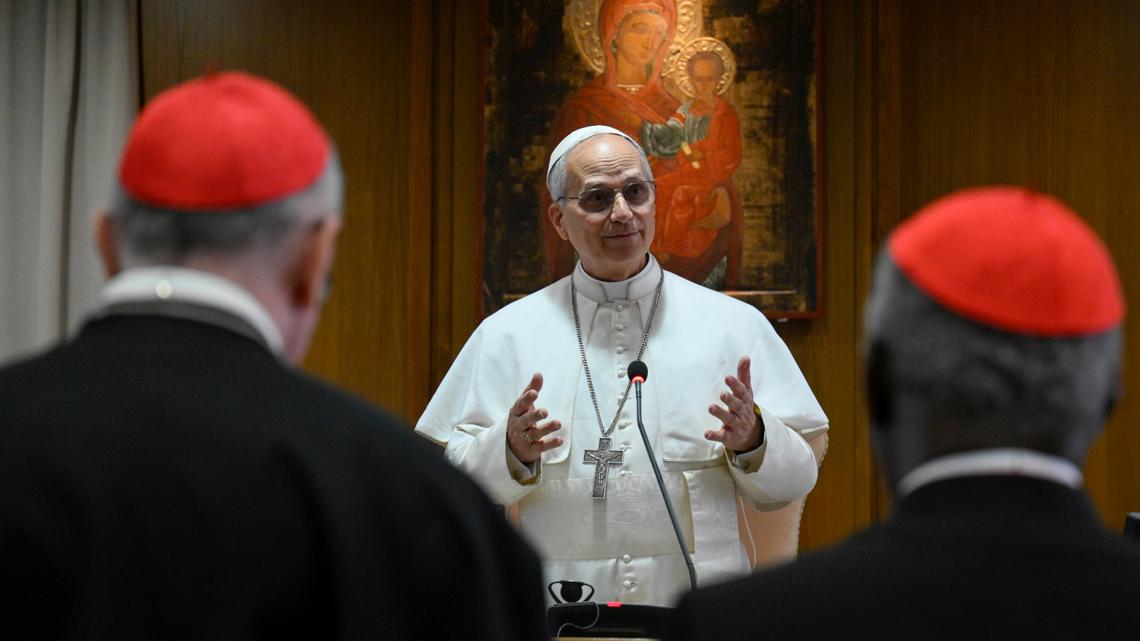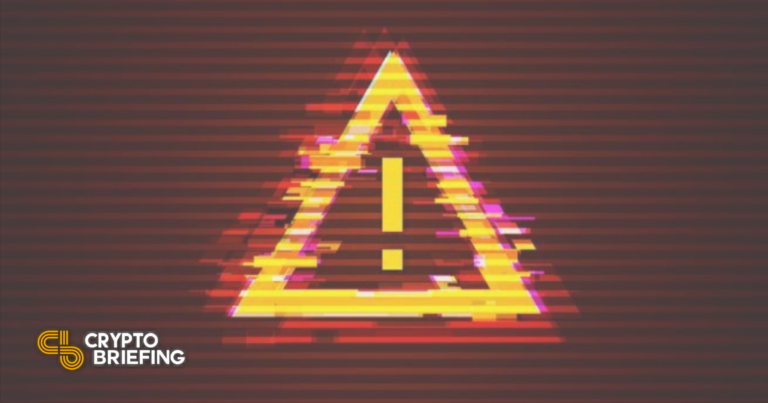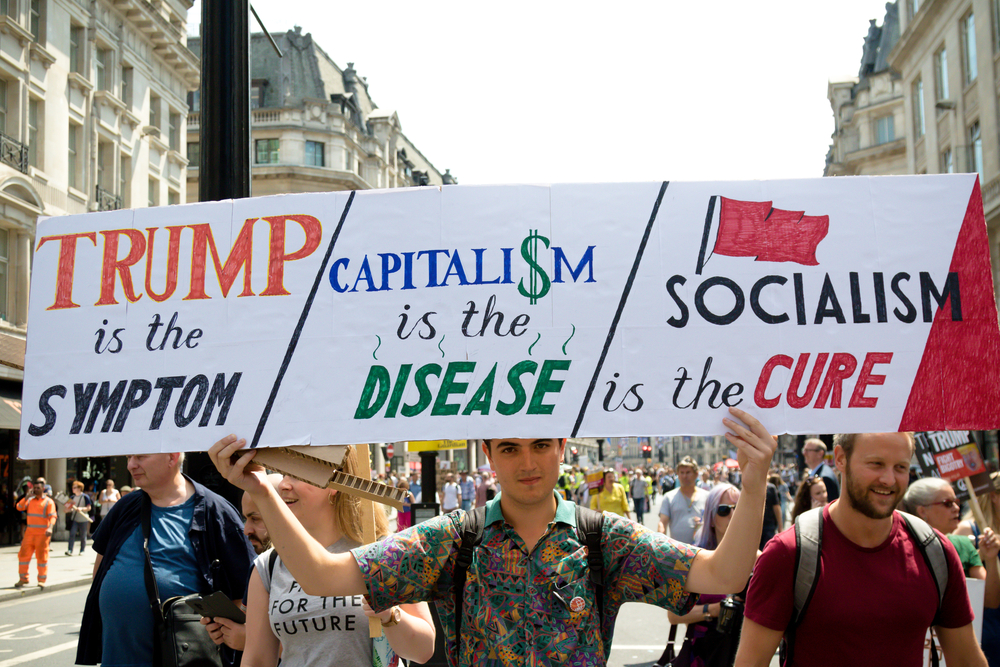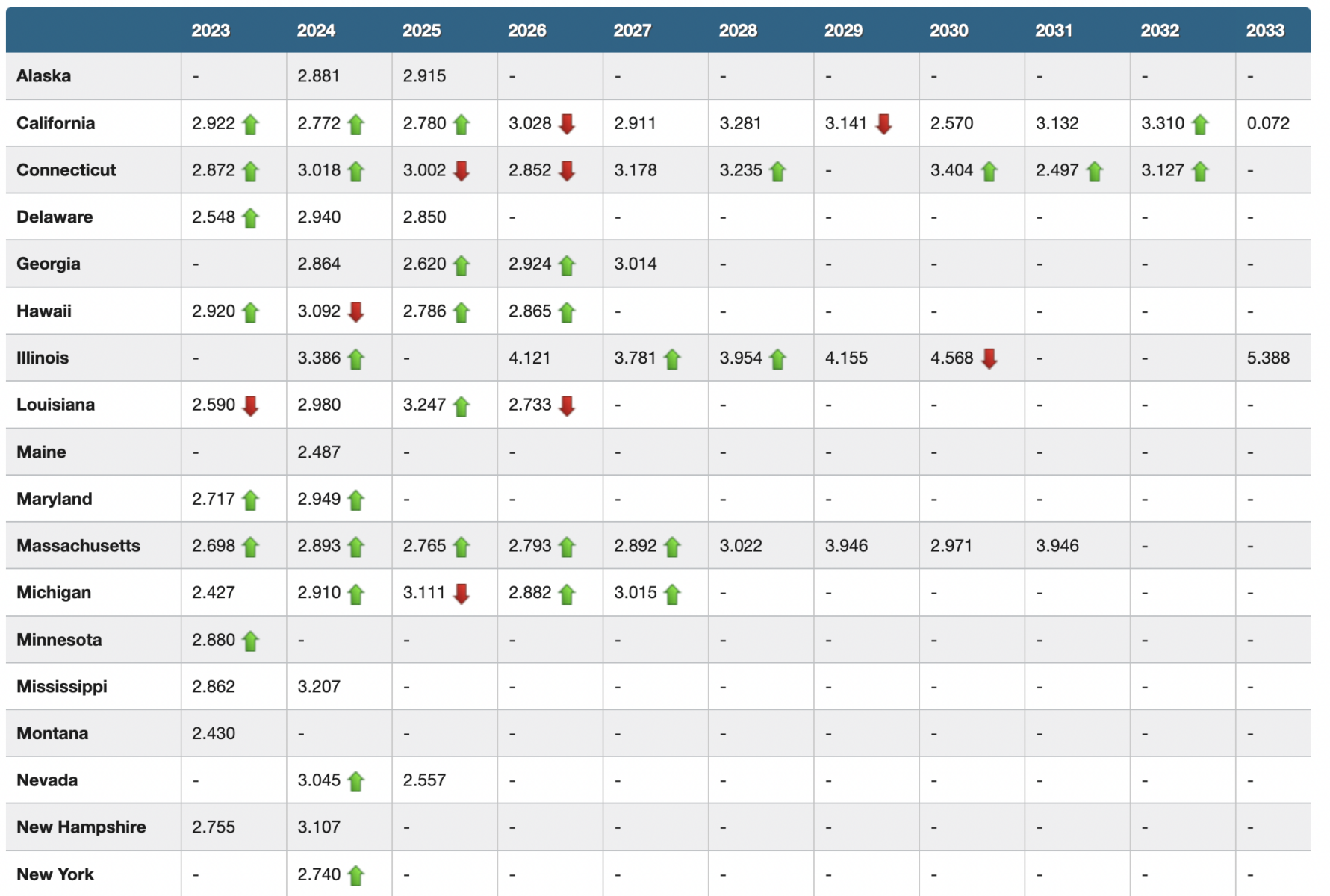The United Kingdom, not to mention the Conservative Party currently running it, is having a bumpy fall.
So bumpy, in fact, that new Prime Minister Liz Truss is reversing course on Trussonomics, the one signature policy her government had proposed in her just six-week tenure — and apologizing for all the economic turmoil it created.
On Monday, the UK’s new Chancellor of the Exchequer Jeremy Hunt announced a near-complete reversal of Truss’s plan for massive tax cuts aimed at Britain’s wealthiest. The proposed “mini budget,” which also included a rollback of corporate tax hikes and a break on planned cost increases for national insurance, sent the British financial markets into a weeks-long tailspin. On top of a deepening cost-of-living crisis, Truss’s plan sent foreign investors fleeing from the British economy, driving the country’s currency to a record-low value against the dollar.
That economic chaos precipitated a political crisis: Truss’s grip on power is slipping fast, as is public esteem for her Conservative Party.
In the past week, her government has been trying to stanch the bleeding. Truss fired her former chancellor and major proponent of Trussonomics Kwasi Kwarteng on Friday, just six weeks into his tenure in her cabinet. On Monday, Hunt, aiming to ease the economic crisis, made public the reversal of Truss’s economic plan, weeks ahead of a planned October 31 rollout.
“We are a country that funds our promises and pays our debts,” Hunt said, rebuking Truss and Kwarteng’s intention to pay for their tax cuts by borrowing, and the very real possibility that their plan would eventually necessitate a cut in social services.
Hunt defended the reversal in Parliament later that day, with Truss sitting behind him, her silence telegraphing the rapid decline of her power and stature.
Even before Truss took office, other politicians and commentators expressed serious doubts about her ability to govern; now, a month and a half into her term, those have turned into questions about how long she’ll last. Truss came into power after Boris Johnson resigned as prime minister and leader of the Conservative Party amid his own scandals, not via a general election. That means she doesn’t have a mandate from the whole of the UK as their elected leader, nor was she the choice of her colleagues in Parliament to succeed Johnson.
Truss apologized late Monday, telling the BBC she would “accept responsibility and say sorry for the mistakes that have been made,” and told interviewer Chris Mason that she intended to lead the Conservative Party through the next general election.
However, it appears the damage has already been done; she’s now the least popular prime minister in the history of polling, and only 7 percent of the public thinks her government is competent, according to a recent poll from the firm Redfield & Wilton Strategies.
“She’s in office, but she doesn’t have much power, and that basically is the problem,” Matthew Goodwin, a professor of politics at the University of Kent, told Vox. “Her entire doctrine has been, essentially, ripped up and reversed, and she is essentially at the whim of her new chancellor, who has clearly decided to jettison most of the policies that make Liz Truss distinctive; indeed, he’s jettisoned the policies on which she campaigned to become leader.”
Truss’s signature policy might be her downfall
Truss’s political crisis started with an economic one.
On September 23, the now-ousted Kwarteng introduced the UK’s biggest tax cuts in 50 years, estimated at about 45 billion pounds over five years. The following Monday, investors soundly rejected the new economic plan, dubbed “Trussonomics” in reference to Reaganomics, the supply-side economic policies passed under Ronald Reagan in the 1980s. Global markets responded to the policy by selling off UK-backed assets and pushing the UK’s currency, the pound, to a valuation of $1.03, its lowest-ever value against the dollar, before it inched up later in the week.
The announcement of Kwarteng and Truss’s new plan also triggered a sell-off in government bonds — typically considered quite safe investments — which was so extreme that the Bank of England, the UK’s central bank, stepped in and purchased 65 billion pounds worth of bonds “to restore orderly market conditions” and float the country’s pension scheme.
One reason Trussonomics was so unnerving was the idea that the tax cuts would be financed by further borrowing. The UK already has a significant public debt burden — without new taxes, the UK’s Office for Budget Responsibility warned, public debt would balloon to 320 percent of Britain’s GDP in 50 years, up from 96 percent, or 2.4 trillion pounds, now.
The International Monetary Fund (IMF) agreed, issuing an astonishing and nearly unprecedented rebuke against the tax cuts, which devalued the pound even further. “The nature of the UK measures will likely increase inequality,” the global lender said, urging the government to “consider ways to provide support that [are] more targeted and reevaluate the tax measures, especially those that benefit high-income earners.”
For the IMF to deliver such a strong admonishment to the fifth-largest economy in the world is particularly striking; typically the fund makes such statements about “emerging market countries with problematic policies but not often G7 countries,” Adnan Mazarei, a former deputy director at the IMF, told the BBC.
While Truss and Kwarteng initially stood by their decision to cut taxes for some of the wealthiest Britons and create special incentives for corporations — including tax cuts and rollbacks in regulations, insisting that the tax cuts would spur more investment in the economy — Kwarteng did announce a partial reversal of the plan on October 3. That temporarily boosted markets, but the pound continued its slump, seeing some recovery last week on predictions of a more robust policy reversal.
Hunt’s new policy will keep the parts of Truss’s plan that roll back a proposed hike on National Health Service insurance fees, as well as proposed changes to the stamp duty. But it’s a rejection of the core components.
“She’s in charge, but she is clearly not in charge,” Mark Blyth, director of the William Rhodes Center for International Economics and Finance at Brown University, told Vox via email. Hunt “defenestrated her. He is running the country. It’s like the shittiest Game of Thrones episode ever.”
Ultimately, Truss’s plan was so dismal that it cratered what little confidence her government had, both abroad and at home.
Though snap polling suggests that Britons approve of Hunt’s decision to overturn Truss’s policies, “with U-turns, the problem for all governments is even if voters support them, they also see them as a sign of weakness,” Goodwin said. And though Hunt is responsible for that decision, that doesn’t mean he’s the obvious choice to replace Truss if a replacement is needed, since most voters won’t really know who he is or have had time to form an opinion on his policies.
“I think it’s a question of when, not if,” Truss will leave office, Goodwin told Vox. “I don’t think, personally, that this is recoverable; I think her authority is completely shot. I don’t think she has any credibility within the Conservative Party and, indeed, the wider country.”
Truss’s tax cuts worked against her own government — and Conservative voters
Truss inherited a bad economy and cost-of-living crisis from her predecessor. But “there might never have been a good time to push through tax cuts,” Nikhil Sanghani, managing director for research at the Official Monetary and Financial Institutions Forum (OMFIF), told Vox in an earlier interview.
On top of high inflation caused in part by the Covid-19 stimulus, stagnant wages, interest rate increases to combat the inflation, a weaker-than-expected economic recovery from the Covid-19 pandemic, and outrageous energy prices caused by Russia’s war in Ukraine amid one of the hottest summers on record, Truss’s tax plan was, he said, “the nail in the coffin in terms of, ‘Will there be a recession?’”
Truss and Kwarteng proposed the policy as a way to jump-start the sluggish economy — essentially, trickle-down economics in the 21st century. But adding money to the pockets of the rich and large corporations with the assumption that they’ll use it in alignment with policy directives flies in the face of widely accepted economic theory. Moreover, injecting more money into an economy already suffering from an inflation crisis is illogical and contrary to the efforts of the Bank of England, which has raised interest rates seven times since December to help reduce the rate of inflation — now around 10 percent.
Taxing income is another way to tackle inflation and provides the government with revenue to fund its programs, like pensions for the aging population and the National Health Service. Instead, the government “decide[d] to do massive tax cuts that may not be even stimulatory given that the skew on who gets the money makes the Trump tax cuts look like socialism,” Blyth said. “The people who get all the money will not spend it because they are already rich, and the people who need money to spend will get next to nothing and will then get slammed with a doubling of energy bills and a huge rise in their mortgage costs.”
Although the government’s policy reversal seems to have rallied markets, it’s unclear what the lasting effect will be, particularly since there are so many mitigating factors like global inflation and the war in Ukraine straining the economy. It has, however, clearly highlighted that the Conservative Party is in trouble.
YouGov polls over the past nine months have put Labour firmly in the lead for the next government. After a series of mishandled crises under Tory leadership — from a rocky Brexit to former Prime Minister Boris Johnson’s Covid-19 scandals and ensuing resignation to the cost-of-living and currency crises now — it seems that voters are ready to boot the Conservative Party.
“This is end of times for the Conservatives unless they can get themselves back to some position of competence and some position of stability, which at the moment is looking very, very difficult,” Goodwin said.
The future of the Conservative Party is in doubt — and it’s bigger than Truss
Truss’s unpopularity is partially of her own doing, but she’s also operating within a party that‘s failed to coalesce under a united vision for the country post-Brexit. The Conservatives won their historic majority in 2019 by bringing new voters into the party. But without the unifying goal of getting Brexit done, the party has a serious issue with internal factionalization.
“Conservatives are now very divided,” Goodwin said. “They have very different views on where they want to take the country. This is not like the US Republican Party that has been largely, almost completely realigned around [a] Trumpist message. This is a much more factional Conservative Party, with different wings — there’s a Boris Johnson wing, there’s a Liz Truss wing, there’s a One Nation liberal conservative wing, and that makes it difficult for the party to find a figure that everybody can agree on, to find policies that everyone can agree on.”
There may be some Conservative politicians who hope to keep Truss in office as a convenient scapegoat for the UK’s economic and cost-of-living crises, experts told Vox, especially considering there’s no real viable alternative leader emerging. Even if there were, it would be a significant challenge to get the party’s different factions to agree on who that should be.
Now, public opinion is at an all-time low for Truss and her party. While Labour is on track to win the leadership in the next general contest, that contest is still years away, so it’s too early to say whether these trends will hold.
Whatever happens to Truss — whether she manages to cling to her office (if not to power) or is rapidly shuffled out — her unpopularity rivals that of only one other Briton, according to Goodwin. “She’s basically in what I would call Prince Andrew territory,” he said, referencing the disgraced brother of King Charles III, who was caught up in the Jeffrey Epstein scandal. “And you generally don’t tend to come back from Prince Andrew territory.”
















